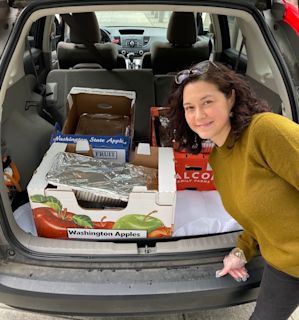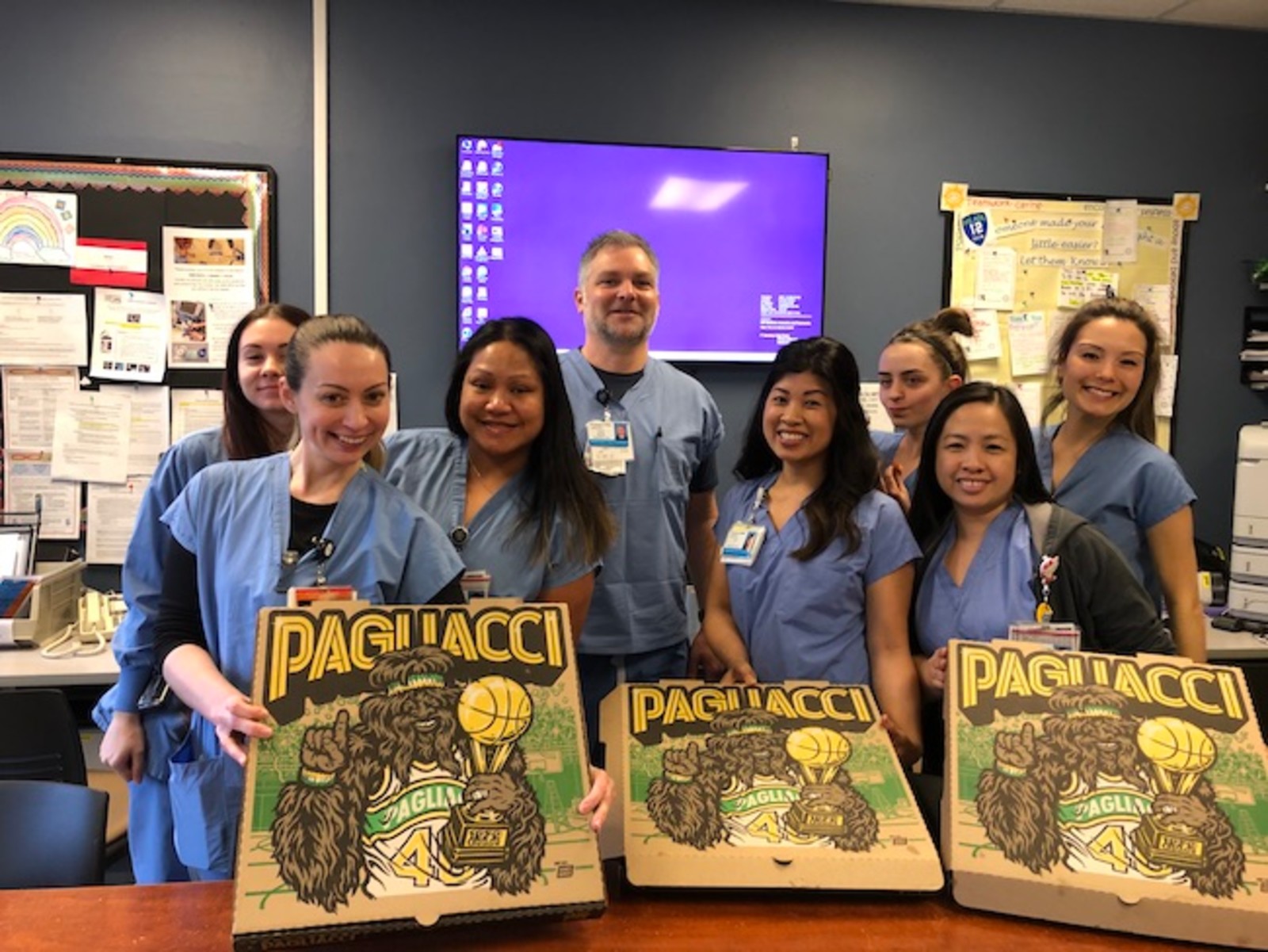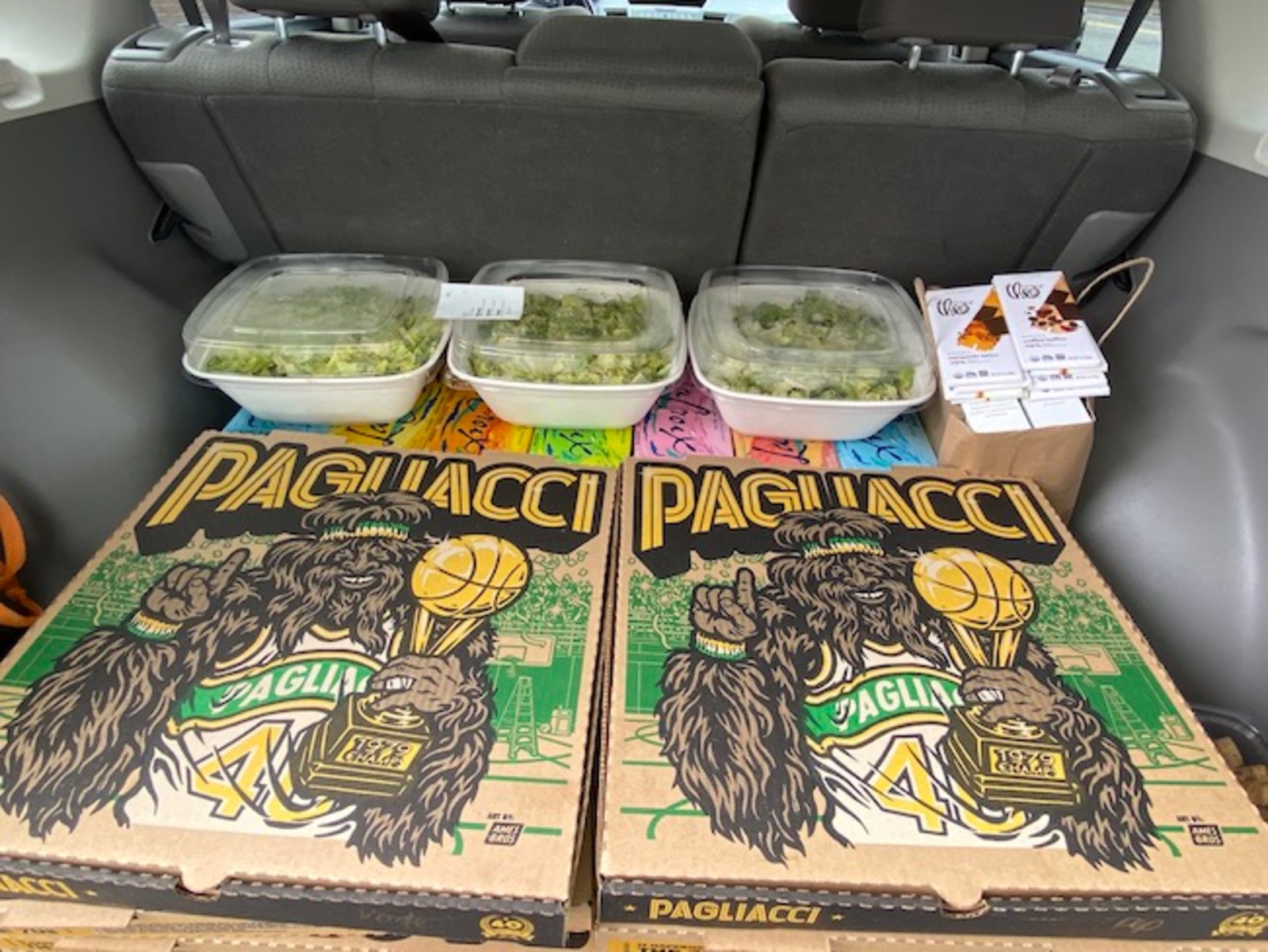We Got This Seattle!

Ellen Kuwana made her first delivery of pizza and salad to the University of Washington Virology Lab on March 13. It was a simple act of grace, her way of thanking the researchers in Seattle working overtime and with unprecedented urgency to understand Covid-19 and ways to fight it, including developing a vaccine against the virus.
"Not to be trite," Ellen says, "but food is love. It's one of the very basic things we can take care of for someone else." The next day she delivered food to a group of doctors and nurses treating Covid-19 patients. Their gowns, masks, and goggles give them some protection against the virus, but they don't shield them from fear or exhaustion. Still, they keep going. It's what they do, what they do for us.
Ellen had no idea that her simple acts of gratitude would soon become a movement, a community coming together. "I never anticipated this becoming as large as it has," Ellen says. Now, in just the third week since that first delivery, Ellen is delivering food seven days a week to 14 sites, sometimes as many as four deliveries per day—while working two jobs with her two daughters home, one from college, the other from high school. Fortunately, she has plenty of support. "It's been really heartwarming to see how many people want to step up and help," she says.
A Facebook fundraiser to support the effort is nearing $20,000. A dozen restaurants have donated or discounted food. A senior brand manager at Seattle Chocolate Company and the cofounder of Ridwell have teamed up to build a website to help coordinate restaurants interested in helping. A representative from Google reached out to offer extra bandwidth. A Twitter post thanking Taste of India garnered 2.45 million impressions and 33,000 likes. "These days, we need a new term for viral tweets like that," Ellen says with a chuckle.

Ellen's family has been ordering from Pagliacci since 1998. She loves the pizza, and it's her go-to when she craves comfort food. She figured it'd be a welcome treat at the UW Virology Lab. "I was going to pay for the pizza and salad when Pagliacci surprised me by donating it," Ellen says. "I don't want to say Pagliacci 5,000 times in this article, but I'm really grateful. Without that first easy yes, and seeing what an impact it had, I don't know that I would have gone down this route. It takes a lot of time to coordinate everything, and Pagliacci has taken some of that burden off me."
Ellen is a science writer who used to work in a lab, and her husband is a doctor, so she is well-versed in the best practices to protect herself and others from contracting the virus. She lets the restaurants know that their staff need to stay six feet away from her at all times, and she will do the same. The delicate but strict dance plays out at the hospital as well. "I pop my trunk and step to the front of the car, then the point person comes out with a cart and gets the food. Once they are back in the building, I close the trunk, Purell, and drive home."

Fully aware that it takes lots of people to run a hospital, Ellen is reaching out to other groups, such as the people who answer the phones and the people who keep the hospital clean and safe. Pagliacci recently donated food to the operators at UW Medical Center and also to Environmental Health Services at Swedish Hospital.
As more donations have come in, Ellen has used some of it to purchase food from restaurants struggling to survive with the shutdown. "I will always ask for a donation or a discount," she says. "I tell the restaurants I'm happy to pay full price, though. They decide what's fair and what's right for their business. So it has been a mixture."
Last week Ellen began hiring some of her daughter's college friends to help with deliveries, carefully training each in the necessary protocols. And more and more restaurants are calling to offer their services. Seattle Chocolate and Midnight Cookie Co. have donated chocolate bars and cookies to go along with the meals Ellen delivers. "It's the comfort food that makes people happy—pizza, chocolate, cookies—to make people feel like they're appreciated and cared for. Kind of back to basics," Ellen says.

